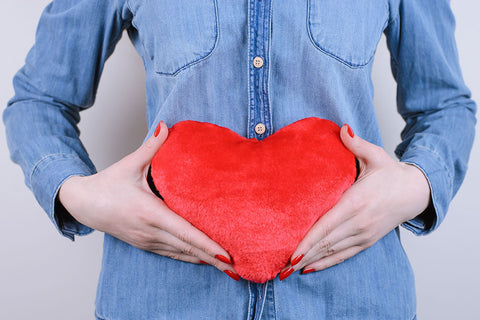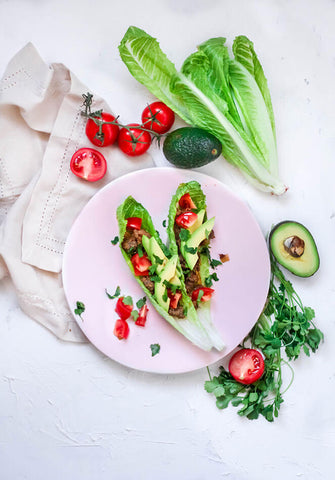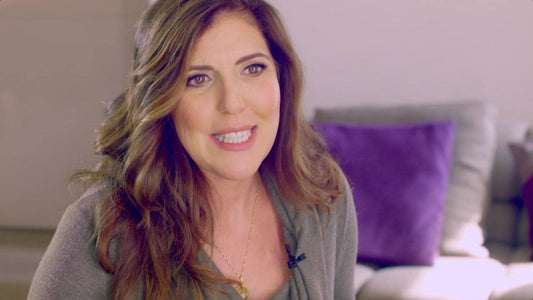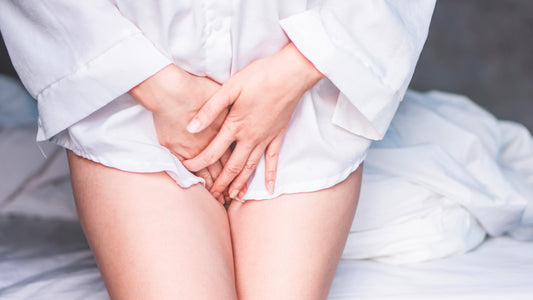While the vagina is essential for life, it can also be oh-so-complicated. (Frankly, most things about being a woman are!)
But the vagina itself is SO important. Especially when you think about the significance of most major milestones in a woman’s life having some sort of connection to her vagina. Not to mention the fact that vaginas are what give us all life in the first place – men included! Yet most of us shy away from learning more about our own vagina, and some women even find it embarrassing to talk about at all.
Well ladies, I’m here to tell you to “Viva the V!” We need to get up close and personal with our vaginas and learn how to protect our pelvic health so we can live pain-free “down there.” We also need to feel comfortable talking about our “V”, especially when we are experiencing issues like painful intercourse or other uncomfortable symptoms. And, we definitely want to feel our best so we can enjoy intimacy to the fullest, even if we aren’t in a sexual relationship at the moment.
So, knowing all of this, I decided to share my absolute best advice for maintaining optimal vaginal health, including tips for preventing yeast and other vaginal infections. But, ladies, if you are currently experiencing any type of pain or serious issue “down there”, you should absolutely contact your doctor right away.
What could go wrong?
Yes, a lot of things can go wrong “down there” and in surrounding areas. Hormone declines that occur as we age can cause some of the most common challenges, like:
- Reduced libido
- Pain during intercourse
- Increased chances for having urinary leakage (incontinence)
But even when we’re younger, hormone imbalances can occur and cause problems. This can be due to a wide variety of things, like:
- Everyday toxin exposures (diet, personal care products and even certain medications can be culprits)
- Pregnancy
- Stress
- And many other daily aspects of a woman’s life
Yep, you heard that right. Hormonal imbalances can create a number of uncomfortable symptoms in the V, including the dreaded yeast infection, which 75% of women will experience in their lifetime! There are also a number of common bacterial infections, including sexually transmitted diseases, that can trigger serious side effects and, in some cases, severe pain.
Now, remember, the vagina is just one of a number of organs and structures found within the female pelvis. Other structures, like the cervix, uterus, ovaries and fallopian tubes; as well as the colon and bladder, can also be adversely affected by disease and imbalances.
I can’t even count the number of women who have come to me over the years who mistakenly thought their vaginal pain was “just part of aging.” This could not be further from the truth! In reality, many of these women had much more serious issues – in most cases, treatable - going on. When pain is involved, we need to be committed to finding its root cause!

Is your vaginal pain part of the natural aging process or something else?
The first thing we need to do when pain is involved is understand why it is happening. Once we know the root cause, we then need to figure out how to resolve that pain and prevent it from coming back. As an experienced OBGYN, I’ve found that, most times, a careful medical history analysis and thorough gynecological exam will point to whether or not the pain is hormone or infection-related.
Now, when dealing with common issues that are less serious, such as vaginal dryness and pain during intercourse, you can typically turn to temporary topical treatments, like moisturizers and lubricants, along with longer-lasting solutions, such as prescription-based therapies. These include bioidentical estrogen HRT or products like Julva®, my all natural anti-aging cream for the vulva.
On top of these therapies, it may take some personal detective work to determine if environmental irritants or other lifestyle activities could be contributing to your vaginal discomfort. Innocent behaviors, like taking medications (antihistamines, for example), hygiene preferences (please, no douching and be careful with the bubble baths!) or even food sensitivities can wreak havoc on your V!
A great place to start your investigation is in your gut. If you have gut health issues and related symptoms, they’re likely going to find their way down to your V in the form of yeast, irritation or other problems. And, don’t be tempted to look over any signs or symptoms when it comes to your vaginal health. Every single thing going on with your V is your body’s way of telling you something. And for those of you who might be thinking that,
“If I’m not having intercourse, why does vaginal dryness even matter?”
Here’s the long and short of it:
- If left unchecked, vaginal dryness can lead to urinary tract infections.
- Dryness can also cause discomfort and pain outside of intercourse, such as when you wipe or put in a tampon, due to sensitivity and thinning around the vulva (some of the simplest activities, even walking, can become quite uncomfortable when this occurs).
- Vaginal dryness can be exacerbated due to the lack of sexual intercourse. That’s because regular sex and vulvovaginal massages help improve circulation in your vagina which, in turn, helps counteract the dryness. So, if you aren’t having sex, you likely need to add more moisture to your V.
- Vaginal health symptoms, including dryness, should be viewed as a warning. This is your body’s way of telling you that your hormones are declining and your V is in need of some TLC.
Bottom line: Even if you aren’t having sex, you need to be aware what’s going on “down there” so you can address any symptoms that are occurring or take proactive measures against side effects of hormonal imbalance. Always remember, though, that if your pain doesn’t resolve itself after adding moisture and implementing holistic DIY treatments, you should call your physician.
While we’re on the subject, I absolutely encourage you to start talking with your doctor regularly about your V. If you’re experiencing any type of vaginal, vulvar or pelvic pain, here are a few simple diagnostic tools that your physician can use to better assess the root cause.
Key Messages
Now, if you take away anything from today’s blog, I hope it’s these 5 messages:
- Educate yourself about the vagina, regardless of your age or level of sexual activity.
- Learn what is considered to be “normal” behavior for your own V. Know your anatomy, listen to your body, and address any symptoms as they occur.
- Pain “down there” is never “normal”. You should see your physician right away if you are experiencing ongoing vaginal pain.
- When talking to your doctor, be absolutely clear about which symptoms you are experiencing. Be honest and candid!
- Focus on maintaining a healthy and balanced diet and lifestyle, which includes managing your stress levels, getting enough sleep and keeping your gut healthy.
Viva the V!
Maintaining a healthy V is just one way to keep your feminine health in tip-top shape. My Keto-Green diet and lifestyle is another easy way to manage your hormones naturally while cleansing and re-energizing your body. My new book The Hormone Fix will guide you every step of the way so you can begin your Keto-Green lifestyle and reap all of its fat-burning, health-building benefits. Today, I’m sharing one of my favorite recipes from the book: Lettuce Tacos!
Lettuce Tacos

- 1/2 pound free-range
- ground beef
- 1 small yellow onion, chopped
- 1 tablespoon coconut oil
- 2 teaspoons chili powder
- 1 teaspoon salt
- Romaine lettuce leaves
- 1 avocado, peeled and sliced
- 1 handful cilantro, chopped
- 1 tomato, chopped
DIRECTIONS
- Sauté ground beef with onion, coconut oil, chili powder, and salt.
- Place mixture in lettuce leaves and top with avocado, cilantro, and tomato.
- Roll up like a burrito. (Top with sour cream –optional
MAKES 2 TO 4 SERVINGS
P.S. If you’re dealing with common “V” issues that are less serious...
Like vaginal dryness and discomfort during intercourse, you can typically turn to temporary topical treatments, like moisturizers and lubricants. Julva®, my anti-aging cream formulated for delicate skin is an excellent option!




